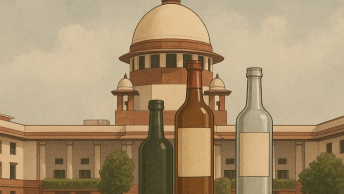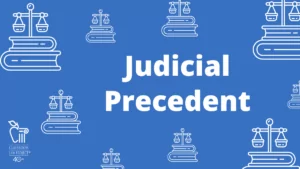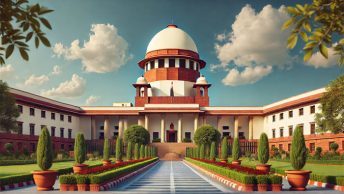Introduction
The legal industry has been revolutionized with the emergence of online platforms as availability of reviews about advocates made the profession transparent and accountable to the public. However, it is argued that the legal profession has become more commercialized with lawyers advertising themselves on such platforms, and providing offer prices.
This matter came before the Madras HC in the case of P.N. Vignesh vs. Bar Council of India. The High Court upheld the traditional view of complete prohibition on advertising. It directed the Bar Council of India [“BCI”] to issue circulars or guidelines to state Bar Councils to initiate disciplinary proceedings against lawyers who are engaged in advertising in any form whether directly or indirectly by catching media attention. The BCI was also directed to register complaints against the online service providers who facilitated the advertisement of advocates in violation of Rule 36 of the BCI Rules.
In this article, the author argues that the argument for a complete prohibition on advertising is unsustainable. Lawyers particularly those from deprived backgrounds and no connections within the fraternity rely on such advertising to establish their practice. The experience from other countries shows that regulating the advertising rather than complete prohibition can uphold the integrity of the profession without compromising on the needs of the advocates. The last part examines some academic material to establish that advertising has many positive effects that cannot be ignored.
Is Legal Practice a Business?
The conventional reason behind prohibiting advertisement is that the legal profession is not and can never be treated as a business and it is not right for any third party to rate the services of a lawyer. This was the position of the Supreme Court in Dhanraj Singh Choudhary vs. Nathulal Vishwakarma, where it held that the legal profession is a “noble profession” and is not a business or a trade. Similarly, in the case of the Bar Council of Maharashtra vs. M.V. Dabholkar, the Supreme Court had held that the legal profession’s canon of ethics should not be “corrupted” by commercial competition. Therefore, lawyers cannot be called businessmen nor client can be termed as consumers. On the same logic, it was held recently that lawyers cannot be prosecuted under the Consumer Protection Act, 1986 for any deficiency.
However, there are cases when legal services have been considered to be in the nature of business. For instance, in Kolapur Traders by Partner Gandhibhai v. Subramania Mudaliar, the Supreme Court held that providing legal services is a business proposition. The Petitioners in this case were tenants of premises which belonged to the Respondent who wanted to evict the Petitioners, so that he can open his law office in the premises. The Court examined Section 10(3)(a)(iii) of the Andhra Pradesh Buildings (Lease, Rent, and Eviction) Control Act, 1960, which allows for eviction if the landlord requires the premises for business. The Court held that the legal profession exhibits features that align with those of a business, especially in terms of its operational and resource requirements, and hence, opening a law office was a legitimate business need.
Once it is recognized that legal profession might be considered as business, we might consider the decision in Tata Yellow Pages vs. MTNL where the Supreme Court recognized advertising as a part of freedom of speech and expression. Hence, Rule 36 is in violation of Article 19(1)(a), i.e. freedom of speech and expression along with Article 19(1)(g) i.e. the freedom to carry on trade, profession, or business. Therefore, a prohibition on advertising must be justified on grounds enumerated under Article 19(2) and Article 19(6). Such justification has not been clearly provided.
Like in any other profession or occupation, people need income for sustenance and those in the legal practice are no exception. However, unlike joining a firm or an organization that provides with a stable salary, independent litigation practice provides no such stable income. Therefore, in the absence of the ability to advertise, first-generation lawyers who do not have clients from connections are left with no option but to leave the profession or to join a senior chamber at a meagre salary. Lawyers are additionally restricted from earning a livelihood by other means under the Bar Rules as reiterated by the Supreme Court.
Regulating advertisements
Another ground on which advertising is looked down upon by the courts is that allowing advertising without regulation can spread misinformation, and disrepute the legal system as a whole. While this concern is not without merit, it can be addressed by less restrictive means such as regulating the advertisements rather than outright prohibition. Such regulation rather than outright prohibition can be justified on grounds of decency and morality under Article 19(2) and in the interest of general public under Article 19(6). The BCI must formulate necessary rules and directions to control how much information a lawyer can give out in public and to mitigate any misleading advertisements. The policy should allow for rating of lawyer’s services and allow the clients to provide feedback so that other clients are also informed.
In the judgment of the current case, reference was made to an advertisement where the lawyer had put up a 30 percent offer; an additional 15 percent cash back and a discount. This kind of advertising justice like a market commodity indeed brings disrepute to the legal system. However, not all advertisements are of such kind as to disrepute the profession. The Author acknowledges that legal profession is distinct from others as unlike other professions that may focus on goods, services, or scientific advancements, legal profession is centred on advocating for rights and ensuring justice, which should not be made similar to a commodity.
Good advertising upholds ethical standards and legal requirements while effectively communicating a lawyer’s accomplishments and qualifications to prospective clients. The advertisements must also avoid using slogans and punch lines and must not sound condescending, to uphold the distinction of legal profession as centred around ensuring justice and advocacy for rights, rather than solely business.
In the next Part, the author will analyse the global practices particularly in the USA, UK, EU regarding advertisements in the legal profession. The author also look at the scholarly material on the impact of such advertisements. The paper will then conclude with suggestions on regulating advertisements.
The Second Part of this series can be accessed here.
Yash Dahiya is an advocate practicing in Goa. and an LLM Candidate in International Commercial Arbitration at Stockholm University, Sweden
[Ed note: This article was edited and coordinated by Hamza Khan from the Student Editorial Team.]







This blog raises a crucial point about revisiting the advertising restrictions for lawyers. Allowing greater transparency through advertising could help clients find the right legal representation, especially in complex areas like class action lawsuits. Class action law firms in NYC, for instance, could use advertising to better inform potential clients about their rights and legal options. This shift could ultimately improve access to justice for many individuals.
ot3vah
Barınaktan, sokaktan ya da gönüllülerden sahiplendirilen sevimli dostlarımız sahipleniyorum.com’da sizi bekliyor. Hayvanseverler için hazırlanan modern arayüzü ve hızlı filtreleme seçenekleriyle aradığınız dostu kolayca bulun.